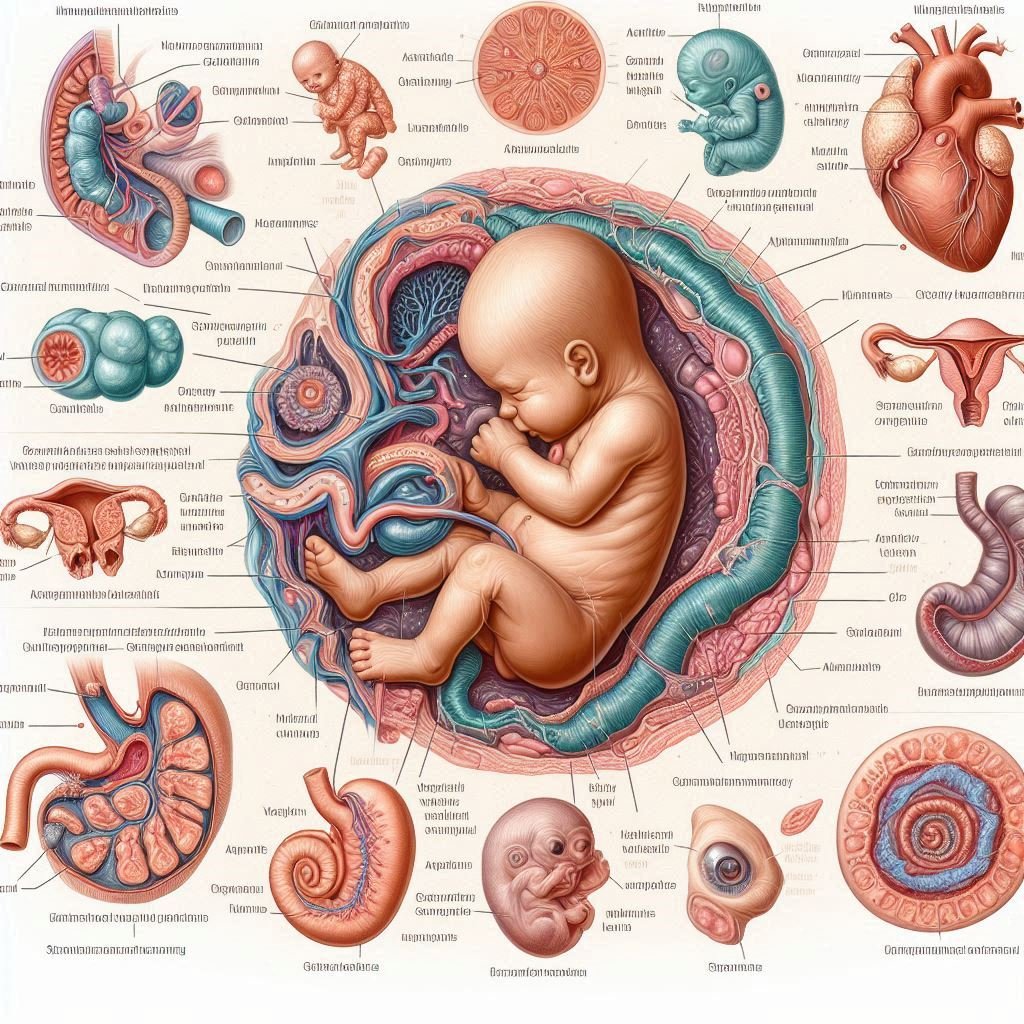What is MTP (MEDICAL TERMINATION OF PREGNANCY) ?

Medical Termination of Pregnancy (MTP), also known as induced abortion, is a medical procedure that terminates an established pregnancy before the fetus is viable outside the uterus. This procedure can be performed for various reasons, including medical, social, or personal circumstances.
Around 45 to 50 millions MTP performed all around the world because of different reasons.
Reasons
There are various reasons why a person might undergo a Medical Termination of Pregnancy (MTP), including:
Health Risks: If continuing the pregnancy poses a risk to the health or life of the pregnant individual. This could include conditions such as severe hypertension, heart disease, or certain infections.
Fetal Abnormalities: Detection of severe fetal abnormalities or genetic disorders that are incompatible with life or would result in severe disabilities.

Unintended Pregnancy: Conception occurred unintentionally, such as in cases of contraceptive failure or non-use.
Maternal Age: Advanced maternal age, where the risk of pregnancy complications increases.
Social or Economic Reasons: Inability to financially or emotionally support a child, or concerns about the impact on education, career, or existing family dynamics.
Sexual Assault or Abuse: Pregnancy resulting from sexual assault, rape, or incest.
Medical Treatments: If the pregnant individual requires medical treatments or medications that would pose a risk to the fetus.
Contraceptive Failure: When contraception fails to prevent pregnancy despite proper use.
Complications
While Medical Termination of Pregnancy (MTP) is generally considered safe, like any medical procedure, it can carry risks and potential complications. Some of the complications associated with MTP include:
Incomplete Abortion: Sometimes, the termination may not be complete, meaning that some pregnancy tissue remains in the uterus. This can lead to continued bleeding, infection, or the need for additional procedures to remove the remaining tissue.
Excessive Bleeding: Heavy bleeding can occur during or after the procedure, which may require medical intervention to control.

Infection: There is a risk of infection following MTP, especially if proper sterile techniques are not followed during the procedure or if the uterus is not adequately emptied. Symptoms of infection may include fever, chills, abdominal pain, and foul-smelling vaginal discharge.
Damage to the Uterus or Cervix: In rare cases, MTP procedures can cause injury to the uterus or cervix, leading to complications such as uterine perforation or cervical tears.
Allergic Reactions: Some individuals may experience allergic reactions to medications used during the procedure, although this is uncommon.
Emotional Distress: MTP can be emotionally challenging for some individuals, leading to feelings of guilt, sadness, or anxiety. Access to counseling and support services is important for those who may experience emotional distress.
Future Fertility Concerns: While MTP generally does not affect future fertility, multiple or poorly performed procedures may increase the risk of complications that could impact fertility.

Role of Government of India
MTP was legalised in 1971 by government of India with some strict conditions in it to stop the indiscriminate and female feticides.
MTP (Amendment) act,2017 was enacted by the government of India and according to this act the pregnancy can be terminated on certain grounds such as-
It is considered safe upto 1st trimester (3 months or 12 weeks) in which there is a need of 1 registered medical practitioner.
If the pregnancy was lasted more then 1st trimester (3 months) but less then 2nd trimester (6 months) then there is need of 2 registered medical practitioner.
Here are some key points regarding the MTP Act in India:

- Legal Grounds for Abortion: The MTP Act allows for the termination of a pregnancy under certain conditions, such as risk to the life of the pregnant woman, risk to her physical or mental health, risk of the child being born with physical or mental abnormalities, or pregnancy resulting from rape or incest.
- Authorized Providers: The Act specifies who can perform abortions, which includes registered medical practitioners who have received training in the procedure as well as facilities approved by the government.
- Gestation Limits: The Act initially allowed abortions up to 20 weeks of gestation. However, in 2021, the Indian government amended the MTP Act to extend the gestation limit to 24 weeks in cases where there is a substantial risk to the life of the pregnant woman or if the fetus has severe abnormalities.
- Informed Consent: The Act emphasizes the importance of obtaining the informed consent of the pregnant woman before performing an abortion.
- Regulations and Monitoring: The Act also establishes mechanisms for the regulation and monitoring of abortion services to ensure safety and quality of care.
Effects on mother
Physical Effects:
- Bleeding: Vaginal bleeding is common after MTP, similar to a heavy menstrual period. The amount and duration of bleeding can vary.
- Cramping: Mild to moderate abdominal cramping is normal as the uterus contracts to expel the pregnancy tissue.
- Nausea and Vomiting: Some individuals may experience nausea or vomiting, especially if medication is used for the termination.
- Fatigue: Feeling tired or fatigued is common, especially if there is significant bleeding or emotional stress.

Emotional Effects:
- Relief or Emotional Distress: Feelings of relief, sadness, guilt, or a mix of emotions are normal and can occur after an MTP. Counseling or support services may be beneficial for coping with these emotions.
- Anxiety or Depression: Some individuals may experience anxiety or depression following MTP, particularly if they struggle with the decision or face stigma or lack of support.
- Grief: Some individuals may experience grief or mourning after terminating a pregnancy, especially if they desired to continue the pregnancy but faced circumstances that led to the decision to terminate.
Potential Complications:
- As mentioned earlier, potential complications of MTP include incomplete abortion, excessive bleeding, infection, damage to the uterus or cervix, allergic reactions, and future fertility concerns. Prompt medical attention should be sought if any complications arise.
Future Fertility: In general, MTP performed under safe conditions does not typically affect future fertility. However, multiple or poorly performed procedures may increase the risk of complications that could impact fertility.
Advantages
Safe Abortion Services: The MTP Act ensures that women have access to safe and legal abortion services. By regulating the procedure, it helps prevent unsafe and clandestine abortions, reducing the risk of complications and death associated with unsafe abortion practices.

Protecting Women’s Health: Legalizing abortion under specified conditions protects women’s health by allowing them to terminate pregnancies that pose risks to their physical or mental well-being. It enables timely intervention in cases of medical complications or pregnancies resulting from rape or incest.
Reducing Maternal Mortality: Access to safe abortion services can significantly reduce maternal mortality rates by preventing deaths caused by unsafe abortion practices. When women have access to legal and regulated abortion services, they are less likely to resort to unsafe methods, thereby lowering the risk of maternal deaths.
Empowering Women: The MTP Act empowers women by giving them control over their reproductive choices and decisions regarding their bodies. It acknowledges women’s autonomy and right to make informed choices about their pregnancies, thereby promoting gender equality and women’s rights.
Preventing Unwanted Births: Legal abortion services help prevent unwanted or unintended pregnancies from progressing to childbirth. This can have social and economic benefits by allowing women to plan their families and pursue education, careers, and personal goals without the burden of unplanned parenthood.

Addressing Fetal Abnormalities: The MTP Act allows for the termination of pregnancies in cases where the fetus has severe abnormalities or congenital defects. This provision helps parents make difficult decisions in challenging circumstances and reduces the emotional and financial burden associated with caring for a child with significant health issues.
Reducing Social Stigma: By legalizing and regulating abortion, the MTP Act contributes to reducing the social stigma and discrimination associated with unplanned pregnancies and abortion. It promotes open dialogue and acceptance of reproductive rights, leading to a more compassionate and supportive society.
Disadvantages
Stigma and Societal Pressure: Despite the legal framework provided by the MTP Act, abortion still carries social stigma in many parts of India. Women may face judgment, discrimination, and ostracism from their communities or families, which can lead to psychological distress and emotional trauma.
Access Disparities: Access to safe and legal abortion services may be limited, particularly in rural areas or regions with poor healthcare infrastructure. Women from marginalized communities, low-income backgrounds, or remote areas may face challenges in accessing abortion services due to lack of facilities, trained providers, transportation, or financial resources.
Gestation Limitations: While the MTP Act was amended in 2021 to extend the gestation limit to 24 weeks in specific circumstances, such as fetal abnormalities or risks to the woman’s life, the general gestation limit remains at 20 weeks for most cases. This limitation may prevent women from seeking abortions in cases where they discover fetal abnormalities late in pregnancy or face delays in accessing healthcare services.

Informed Consent Challenges: Ensuring informed consent, as required by the MTP Act, can be challenging in practice, especially in cases where women may face coercion, pressure, or misinformation from healthcare providers, partners, or family members. This could compromise women’s autonomy and decision-making ability regarding their reproductive choices.
Lack of Comprehensive Reproductive Health Education: A lack of comprehensive reproductive health education and awareness about contraception, family planning, and abortion rights may contribute to unintended pregnancies and unsafe abortion practices. Improving access to accurate information and education about reproductive health is essential for empowering women to make informed choices and access appropriate services.
Ethical and Moral Debates: Abortion remains a contentious ethical and moral issue in many societies, including India. Debates surrounding the sanctity of life, personhood of the fetus, and religious beliefs can influence public discourse and policymaking related to abortion laws, leading to ongoing controversies and challenges in implementing the MTP Act effectively.
Trauma and Emotional Impact: While legal abortion services aim to provide safe and supportive care, the decision to terminate a pregnancy can still have emotional repercussions for women, their partners, and families. Some women may experience grief, guilt, or psychological distress following an abortion, highlighting the importance of comprehensive counseling and support services as part of abortion care.

FAQ (Frequently Asked Questions)
1. What is MTP? Ans. MTP stands for Medical Termination of Pregnancy, which is the termination of pregnancy through medication or surgery under specified conditions and by registered medical practitioners.
2. Is abortion legal in India? Ans. Yes, abortion is legal in India under the Medical Termination of Pregnancy Act, 1971, and subsequent amendments. However, there are certain conditions and gestational limits outlined in the law.
3. What are the legal grounds for abortion under the MTP Act? Ans. Abortion is permitted if continuation of the pregnancy poses a risk to the life or physical or mental health of the woman, or if there is a risk of the child being born with physical or mental abnormalities, or if the pregnancy is a result of rape or incest.
4. What is the gestational limit for abortion in India? Ans. The general gestational limit for abortion is 20 weeks. However, it can be extended up to 24 weeks in cases where there is a risk to the life of the pregnant woman or if the fetus has severe abnormalities.
5. Who can perform abortions under the MTP Act? Ans. Registered medical practitioners who have received training in abortion procedures and facilities approved by the government can perform abortions under the MTP Act.
6. Is parental or spousal consent required for abortion? Ans. No, parental or spousal consent is not required for a woman above the age of 18 to undergo an abortion. However, informed consent of the pregnant woman is necessary.
7. Are there any side effects or risks associated with abortion? Ans. Like any medical procedure, abortion carries certain risks and potential side effects, such as bleeding, infection, or damage to the uterus. However, when performed by trained medical professionals in a safe and hygienic environment, the risks are minimized.
8. Are there any restrictions on advertising abortion services? Ans. Yes, advertising abortion services is prohibited under the MTP Act. Healthcare providers are not allowed to advertise abortion services directly or indirectly.
9. Can a woman choose the method of abortion? Ans. The method of abortion is usually determined by the gestational age of the pregnancy and the medical condition of the woman. However, in some cases, the woman may have a choice between medication abortion (using pills) or surgical abortion.
10. Where can I get more information about abortion services? Ans. You can seek information about abortion services from registered healthcare providers, government health facilities, family planning clinics, or organizations specializing in reproductive health. Additionally, you can refer to official government websites or helplines for information and support regarding abortion services.
Conclusion
In the tapestry of women’s health and rights, the Medical Termination of Pregnancy Act in India emerges as a guiding thread, weaving together legal protections, healthcare provisions, and social progress. As we navigate the complexities of reproductive healthcare, let us uphold the principles of dignity, autonomy, and equality enshrined in the MTP Act, ensuring that every woman has the freedom to make choices that honor her health, her well-being, and her future.
Table of Contents
Read more about MEDICAL TERMINATION OF PREGNANCY
Jaundice-types, causes, symptoms, treatment……
Go and visit dusearchit.in and get more knowledge about others topics.
